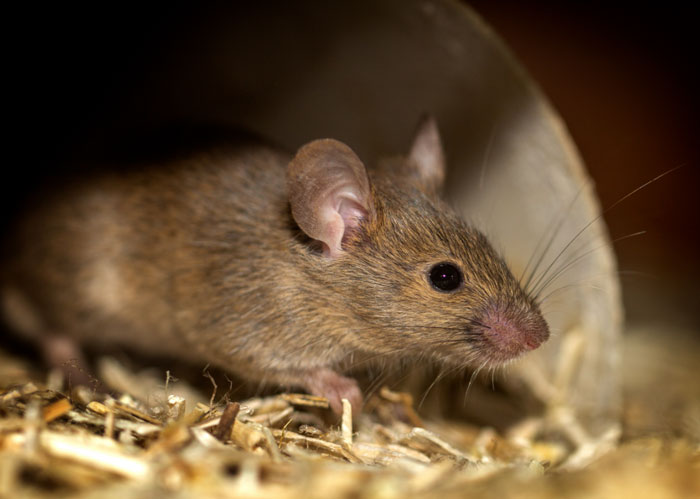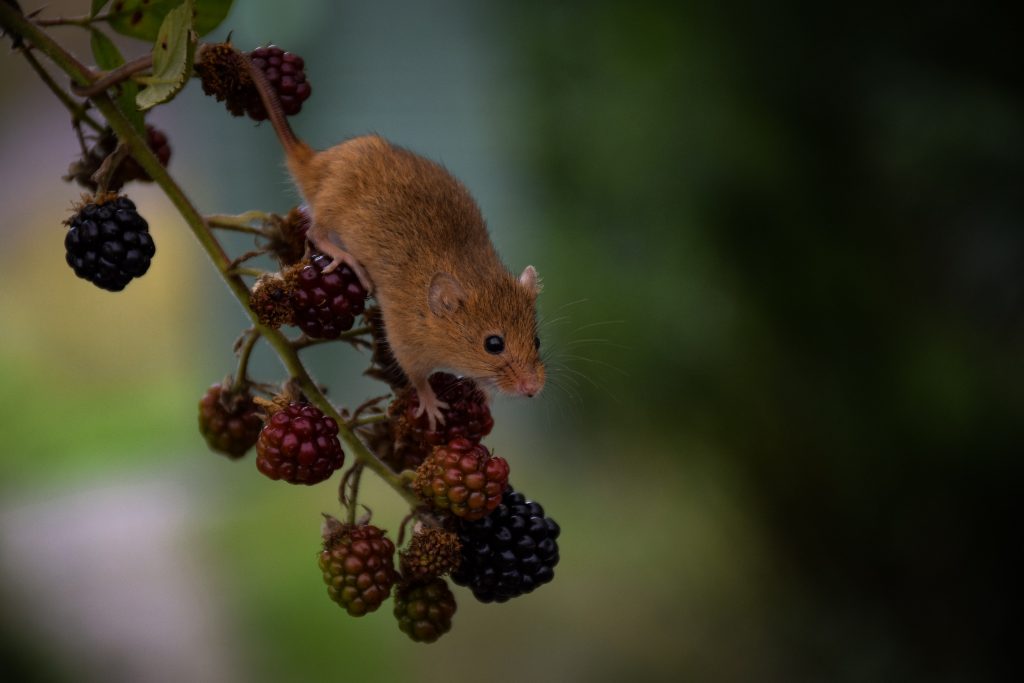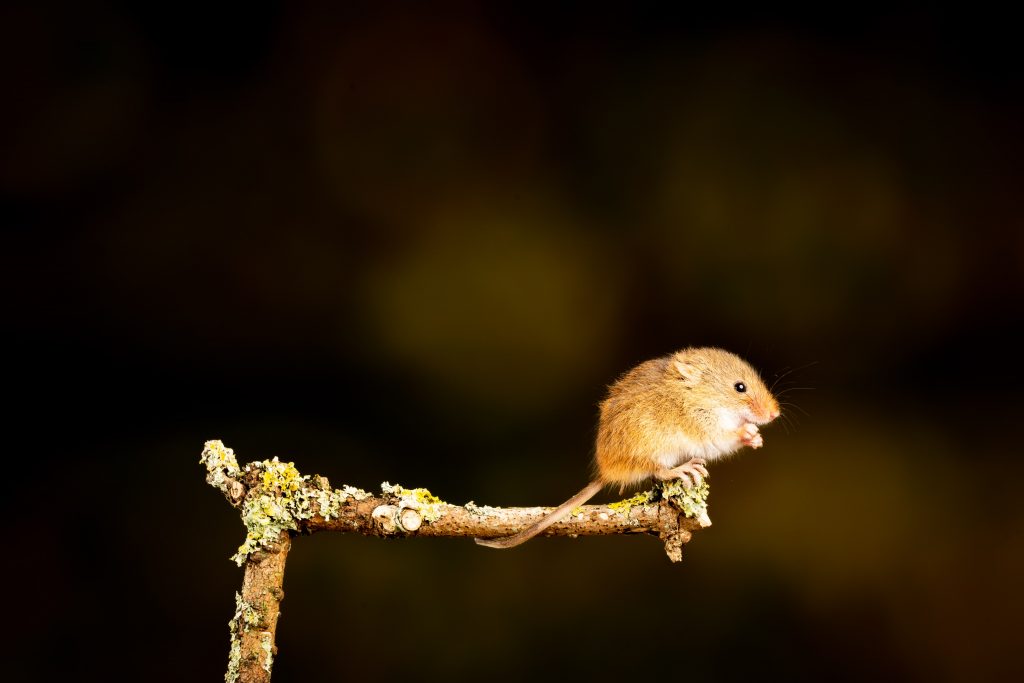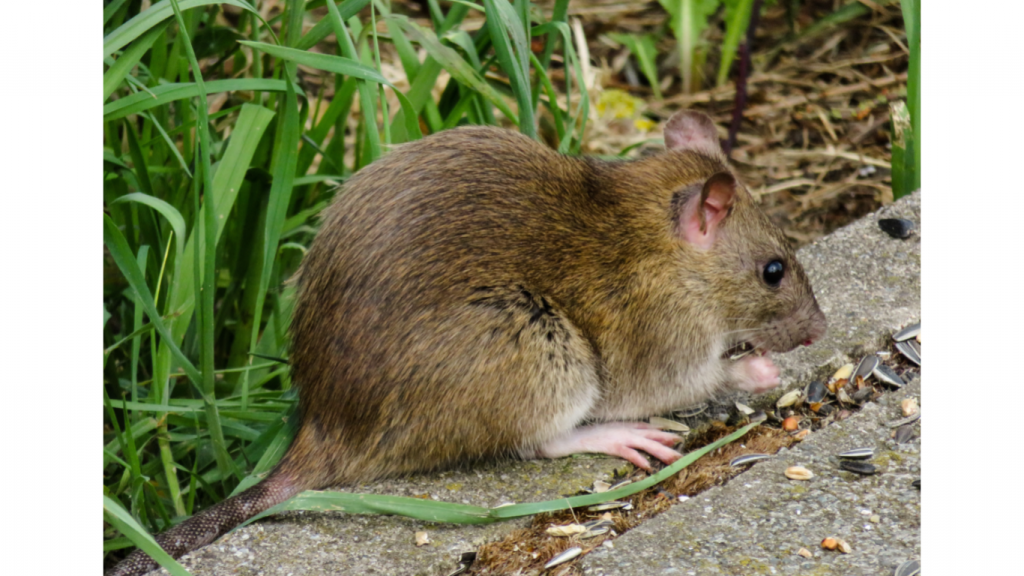Mice Pests

General Information
Mice can carry diseases such as Salmonella, Hantavirus and Lyme disease. They have an acute sense of hearing, frequently using ultrasound to communicate, and are particularly sensitive to any sudden noise and vibrations so will likely nest in cavity walls, loft spaces, and under floors that won’t have footsteps overhead (under stairs and wardrobes). Mice gnaw due to their front two teeth (incisors) constantly growing, which they file, grind and wear down. They eat and drink very little, around 3g a day. Males can be aggressive towards other male mice, even in the nest. When populations have an excess of food, there is less female-female aggression, which usually occurs to gain access to food or to prevent infanticide. Male-male aggression occurs in commensal populations, mainly to defend female mates and protect a small territory.
Average Lifecycle
The female house mouse may have up to 8 litters a year, each litter containing 4-15 mice, averaging 7-8 pups. The gestation period from mating is about 3 weeks and mice will reach sexual maturity in 8-12 weeks from birth. They are weaned at around 18 days of age. These guys don’t need laxatives; they produce an average of 80 droppings per day and are incontinent. Mice live for 2 to 3 months in the wild due to the harsh environment and amount of predators. In protected environments, however, they often live two to three years.
Quick Facts
Type: Mammal (Rodent)
Diet: Predominantly herbivorous
Lifespan: Typically 1-2 years
Size: Body is 8-35 cm including tail
Weight: Average 30g
Habitat: Well adapted to various habitats
Range: Originated in Asia, but now common worldwide
Scientific name: Mus
There are three common species of mice considered pests in the UK:
Field Mice
Field mice may be attracted to inhabited buildings during winter months due to the harsh temperatures. Mice are crepuscular – most active during dusk till dawn (nocturnal) and they are averse to bright lights. Mice can swim but will avoid water. They have poor eyesight and are thought to be colour blind. Mice are generally afraid of rats which often kill and eat them, a behaviour known as muricide. Therefore it is unlikely to find these two inhabiting the same environment and territory.


House Mice
House mice are active all year round in homes and offices. They usually live less than one year in the wild due to a high level of predation and exposure to harsh environments so will seek shelter in your home immediately. House mice can sometimes transmit diseases, contaminate food, and damage food packaging. Mice have been known to gnaw through electrical cables and 1 in 4 property fires in the UK is contributed to rodents. Mice will use all sorts of materials for bedding such as chewed plastic bags, tissues, cotton wool, as well as stripping strands of carpet and rug fibres. Mice can be heard during nocturnal hours gnawing in wall and ceiling cavities which can keep you and your family awake. This sleep deprivation can in turn impact on your work performance and social lives.
Yellow Necked Mice
The yellow-necked mouse also called yellow-necked field mouse, has a band of yellow fur around the neck and slightly larger ears than other native mice. Around 100 mm in length, it can climb trees and sometimes overwinters in houses. It is found mostly in mountainous areas of southern Europe, but extends north into parts of Scandinavia and Britain. It facilitates the spread of tick-borne encephalitis to humans and is a reservoir species for the Dobrava virus.

FUN FACTS
• The common fear of mice is called musophobia.
• The most famous musophobic was Walt Disney and it is said that he created Micky Mouse to prevent other children being fearful.
• One mouse that was kept in an enriched environment and did not receive any genetic, pharmacological, or dietary treatment lived for 1,551 days (4 years, 90 days).
TREATMENT
We at PestGone carry out an intense baiting treatment over three weeks to eradicate your unwanted visitors so to protect your homes, offices and beauty sleep. We will also provide a separate quote for blocking and proofing all gaps and holes which are allowing your furry house guests to access your personal space.







